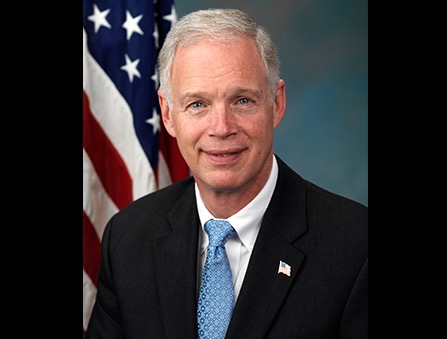Capitol Hill Is Ready for Some Football

The smarter way to stay on top of broadcasting and cable industry. Sign up below
You are now subscribed
Your newsletter sign-up was successful
Related: Nexstar Waiver Request Draws Diverse Support
It’s fall, which means legislators’ fancies turn to thoughts of football and why some of their constituents can’t get TV broadcasts of their favorite team.
At an FCC oversight hearing, chairman Tom Wheeler got a courteous earful from a couple of senators on moving swiftly on requests to modify satellite markets to include stations carrying instate news and sports, including those must-see TV football games.
Because of the way some Nielsen markets are gerrymandered, pockets of in-state viewers keep getting out-of-state stations.
Sen. Ron Johnson (R-Wis.) told Wheeler it was unfortunate that many of his constituents were forced to watch the Minnesota Vikings and Tennessee Titans game instead of the Green Bay Packers and Jacksonville Jaguars.
Wheeler is a big football fan himself, particularly of the Buckeyes, representing his alma mater, Ohio State.
Sen. Cory Gardner (R-Colo.) was the first to bring up the issue at the hearing, saying he was planning a meeting this month with broadcasters, Dish and legislators to figure out how to get in-market signals rather than the New Mexico signals that left them with insufficient access to local broadcasts.
The smarter way to stay on top of broadcasting and cable industry. Sign up below
In part at Gardner’s urging, the FCC is allowing county commissioners as well as broadcasters to petition for market modifications. Gardner put out an open call to those commissioners to weigh in.
Gardner praised broadcasters and satellite providers for trying to resolve the problem, noting that Dish had said modifying the two relevant markets to include in-state signals was not “infeasible,” while broadcasters there had said they were willing to supply the content.
Congress in the most recent update of the satellite compulsory license (the so-called STELAR bill) had allowed for market modification by satellite operators similar to that already applicable to cable.
Wheeler said the FCC would join the meeting if it would help. But the FCC can be of even more immediate help, Johnson suggested, and the agency appears to have heard him.
The senator said he had twice—in December 2015 and again in March 2016—urged the FCC to act swiftly on petitions for market modification, but now had his own test case.
Gray Television filed the first such petition in the state, asking that the signal of WSAW Wausau (Wis.) be extended to the counties of Ashland and Iron. Johnson said viewers there are “anxiously awaiting the ability to see the Green Bay Packers on their satellite signals.”
Wheeler said he knew of no reason why the commission could not put it out “instantaneously,” which he updated to “as fast as humanly possible.”
Wheeler was as good as his word. The petition was issued Sept. 16, the day after the hearing. The chairman also pointed out that the FCC would have to work with the satellite providers on technical capacity. That’s because those satellite providers use spot beams to deliver local stations to customers of their otherwise national service. Modifying markets using that technology is tougher than for a local cable operator.
Comments on the Gray petition are due by Oct. 17. The FCC has until Jan. 17 to make a decision, but if it takes that long, Packers fans will need their team to get into the playoffs. The last regular season game is Dec. 24.
Contributing editor John Eggerton has been an editor and/or writer on media regulation, legislation and policy for over four decades, including covering the FCC, FTC, Congress, the major media trade associations, and the federal courts. In addition to Multichannel News and Broadcasting + Cable, his work has appeared in Radio World, TV Technology, TV Fax, This Week in Consumer Electronics, Variety and the Encyclopedia Britannica.

